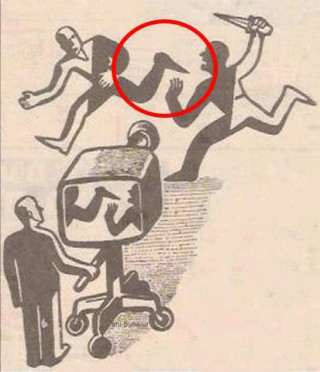By Rohan Bhatia
Yes, you heard that right. This is not another self-help blog to make you feel better about yourself or your intellect. This is a reality check for all you genuine geniuses and bright brainiacs who think they are smarter than everybody else.
Ignorance may be bliss sometimes, but definitely, not when your intelligence is in question!

Now this may not exactly be music to your ears, but you too, are one of the many such blissfully unaware people. The cause being various fallacies and biases that we fall prey to unknowingly. (I hope so!)
Here are some of these and possible solutions.
- The Sunk Cost fallacy
Sunk costs are those parts of costs which have already been incurred and can’t be recovered now. Although this term may be specific to economics, all of us have fallen prey to this fallacy some time or the other in our lives.
Have you ever decided to stand by a decision, no matter how stupid it may be simply because you have already invested so much in it?
“Let me attend this stupid lecture since I’ve already sat through half of it.”
“I might as well finish this boring book now that I have read a hundred pages.”
“Why don’t I just I finish the food now that I have paid for it.”
If such thoughts have passed through your skull, you have been taken for a ride by the sunk cost fallacy.

Solution: It is easier to avoid this trap than it may seem. Simply judge decisions on the basis of their future benefits rather than their past costs.
2. The Texas Sharpshooter fallacy
This may sound really cool, but no, it really isn’t. It relates to how humans tend to ignore the randomness of events when they are trying to find meaningful causes, and often stress more on the negligible similarities between these events, rather than the readily apparent differences, just to find relate-able patterns.
Let me dumb that down for you. Take a simple example. When you try to paint a bull’s-eye around a spot which is already clustered with a lot of bullet holes, you are bound to feel like a sharpshooter (hence the name)!
So keep this one in mind the next time you read your horoscope at the end of the day, and exclaim how accurate it is!

Solution: To avoid looking like a fool due to this fallacy, follow a scientific approach, hypothesize before the experiment- rather than after- and then study the results.
3. The Spotlight fallacy
This fallacy is committed when a person assumes all members of a set to have a certain characteristic since one such member having said characteristic has been receiving a lot of attention.
The most common example of this would be how people to make generalizations and stereotypes because of how much news coverage a particular issue gets. This is the reason why you are scared to travel by air but okay with driving to the airport in a car even though statistically, you are TWO HUNDRED times likelier to die doing the latter!
How so? Plane crashes receive phenomenally higher media coverage as compared to car accidents, and thus, you develop a generalization that travelling by air is dangerous.\

Solution: As goes the age-old adage, never judge a book by its cover. And learn to read between the lines. The majority needn’t be right every time.
4.The Anchoring Effect
How often have you heard people tell you that first impressions last forever, and how often have you used this to your advantage. Be it dressing sharp for a meeting, reading up about the client before a sales pitch, or simply smelling good for a date! Well, newsflash: you have been fooled more often by this effect than you have fooled others using it!
Due to this effect, our brain usually bases decisions on the first stimulus it receives (i.e. the ‘Anchor’) and evaluates the ensuing changes keeping the anchor as a standard.
Try remembering that time when your buddy asked you for a thousand bucks and you were all “Like hell! That’s too much!” and then that clever bastard was like “Oh, fine! How about a hundred?” to which you happily obliged. Here, your friend’s unreasonable request for a thousand bucks turned out to be the anchor against which you judged his subsequent request for a hundred instead to be perfectly reasonable. And let me tell you, in all likeliness he would have needed just ten! Now that I have reminded you, ask him to pay up.

Solution: Don’t fixate on first impressions and study the situation objectively, instead of sticking to a particular reference point.
These are just a few out of many such fallacies and biases that have plagued us since forever.
































